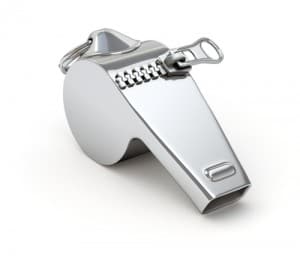Kidney Dialysis Provider DaVita Agrees to Healthcare Fraud Whistleblower Lawsuit Settlement
 DaVita Healthcare Partners Inc has agreed to pay $450 million to settle a healthcare fraud whistleblower lawsuit which accused the company of intentionally wasting medications in order to overbill Medicare.
DaVita Healthcare Partners Inc has agreed to pay $450 million to settle a healthcare fraud whistleblower lawsuit which accused the company of intentionally wasting medications in order to overbill Medicare.
The company is the US’s largest kidney dialysis provider, and also faces personal injury and wrongful death lawsuits involving the use of dangerous drugs Granuflo and Naturalyte during dialysis. The drugs can reportedly trigger heart conditions and lead to heart attacks or strokes.
The healthcare fraud whistleblower lawsuit against DaVita alleged that the company intentionally used larger-than-necessary medicine vials, or unnecessarily spread medicine dosages across multiple treatments, in order to get more money from Medicare.
The settlement agreement was filed in principle in a federal court in Atlanta, GA on April 16th. On Monday, May 4th, DaVita made the healthcare fraud whistleblower lawsuit settlement terms public.
The whistleblowers who filed the lawsuit were Alon Vainer, a nephrologist who has worked in a variety of dialysis clinics in Georgia, and Daniel Barbir, a Georgia-area registered nurse. They filed their qui tam case in 2007; the whistleblower complaint was unsealed in 2011; however, the federal government declined to join the case. After the Department of Justice declined to join the whistleblower case, Vainer and Barbir filed a civil lawsuit with the False Claims Act in 2011.
Their whistleblower case specifically claimed that DaVita pressured the plaintiffs and other workers at dialysis clinics to overuse Zemplar, a vitamin D supplement, and Venofer, an iron supplement. In one case cited in the qui tam filing, if a doctor needed to use 25 mg of Venofer, they would be required to use 100 mg instead, and then Medicare would be billed for 100 mg.
The claim also accused DaVita of using multiple vials of the same medication, when using a single vial would have been sufficient, specifically to overbill Medicare for using multiple drug vials. DaVita cited an instance in 2001 when the CDC recommended against this type of “double dipping” to help prevent disease spread, but then in 2002, stated that if cleanliness procedures were followed with some types of drugs – such as Epogen, Zemplar, and Venofer, which were used at DaVita clinics – then using a single vial multiple times would be safe. However, DaVita “intentionally did not do so in order to purposefully create and maximize their waste and receive significantly higher reimbursements and revenue for Venofer and Zemplar usage,” according to the qui tam claim.
“Although we believe strongly in the merits of our case, we decided it was in our stakeholders’ best interests to resolve it,” DaVita Chief Legal Officer Kim Rivera said in a statement. “The potential mandatory penalties for being found in the wrong in even a small percentage of instances were simply too large.”
The Strom Law Firm Protects Whistleblowers In Qui Tam Cases in South Carolina
If you have first-hand information regarding healthcare fraud, government contractor fraud, or other fraud involving federal money, you may be able to file a healthcare fraud whistleblower lawsuit. The South Carolina qui tam attorneys at the Strom Law Firm can help you file the case, defend you against employer retaliation, and represent you in court. We offer a free case evaluation to discuss your fraud concerns and see how we can help, so contact us today. 803.252.4800

